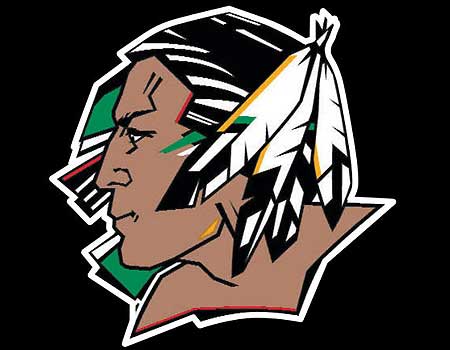The state board made the right call Thursday to extend the deadline while insisting on tough but needed conditions.
This decision—at the time, a strategic retreat—has made the NCAA’s position almost unassailable from people on all sides of this scorching hot-button issue.
That’s proving to be the case in North Dakota, too. Here, the State Board of Higher Education is stepping across a minefield with what almost resembles agility, because it’s being guided by the NCAA’s rule.
On Thursday, the board wisely extended its deadline and gave the people of Standing Rock that time.
And as a result, whatever happens over the next two months, North Dakotans will know that the outcome had the full involvement of the Sioux people of the state. That should have happened years ago, but it’s better late than never to see it happening now.
Recall that when the NCAA first announced its decision against tribal nicknames for athletic teams, the rule had no exceptions. None: The association even ruled against the College of William and Mary in Virginia because the school had two feathers attached to its athletic logo.
Then, Florida State University argued that its own nickname, the Seminoles, was being used with the permission of the Seminole tribe.
That brought the NCAA to a decision point. The association could have taken a hard line and insisted that FSU drop its nickname anyway.
But the action would have smacked of the same arrogance that the association claimed the universities were showing. After all, who was the NCAA to tell the Seminole people that they’d approved the “wrong” use of their own name?
As former UND president Charles Kupchella said, “If Indian people themselves say it’s OK and the official governing body says it’s OK, maybe it’s OK.”
So the NCAA backed down. It let Florida State carry the day and modified the nickname rule to allow for approval by namesake tribes.
There the position has stood. And there it will remain, because the position is almost—not entirely, but almost—unassailable.
If tribal governments say no, then nickname supporters risk looking selfish if they insist on using the nickname. Conversely, when tribal governments (and voters) say yes, then nickname opponents risk looking elitist when they keep saying they—the opponents—know best.
UND’s mixed signals
By Roman Stubbs
Even if the board’s intentions are clean, this issue still reeks. It is not just the virtues of racism and political correctness colliding. Thursday’s decision was about sports and money. The school is currently trying to gain inclusion into the Summit League, but the conference has made it clear that a decision will not be made until the nickname issue is resolved.
From an economic standpoint, UND would be devastated to lose the symbol. The school would have to cut its losses with merchandising, including the loss of a nationally popular and profitable hockey sweater.
In 2007, UND moved up to Division I competition, bearing substantial annual expenses--including scholarships--national travel costs and athletic fees. In 2001, Ralph Engelstad donated $100 million to build a state of the art arena for the UND hockey program, but threatened to pull the funds if the nickname changed. He handcuffed the university--and the indigenous people of North Dakota--by placing massive metal Fighting Sioux insignias throughout the arena, as well as crested plates on every seat, knowing UND would have to eat those costs should the name change.
Carol Davis, Belcourt, N.D., letter: Discrimination happens, and it hurts
That’s unfortunate because the logo is offensive to not only our Lakota brothers and sisters but also other tribes. Disrespect affects all of us when our culture and people are ridiculed by the Fighting Sioux’s athletic opponents or when we are looked upon as mascots.
My granddaughter was a victim of abuse when she rode on a float in a UND Homecoming parade several years ago. She was a small child who was very proud of her new dance outfit. That pride was not shared by some fraternity boys, who threw beer all over her and called her names. They didn’t ask if she was a Chippewa or “Sioux.”
When my daughter found her, she was hiding under her shawl and crying on the back of the float.
When those incidents take place, are we supposed to put our heads down and wait for it to happen to the next innocent child? And believe me, the name-calling has happened since, and it will happen again.
For more on the subject, see Fighting the "Fighting Sioux."


No comments:
Post a Comment